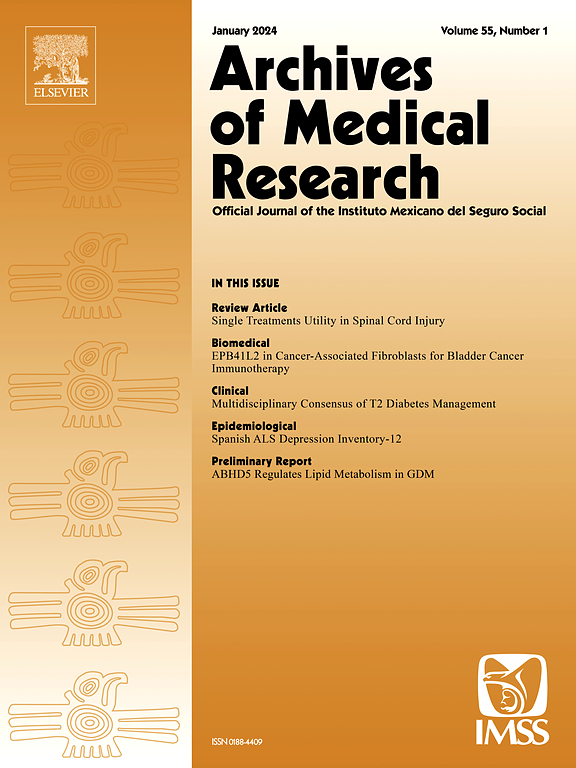肠道通透性在健康和疾病中的调节:可能的治疗应用。
IF 3.4
3区 医学
Q1 MEDICINE, RESEARCH & EXPERIMENTAL
引用次数: 0
摘要
肠道渗透性是指某些物质通过肠道屏障进入血液,到达需要它们的组织和器官的过程。这一重要过程受到多种生理机制的调节,取决于被转运的分子类型,从离子和水分子到大肽和维生素。然而,在某些条件下,肠道通透性会增加,使身体暴露于不需要的分子和致病微生物的通道中。肠通透性增加的各种机制包括带蛋白途径、肠上皮细胞死亡、肠道生态失调和胞吞作用。这些机制中的每一个都被特定的刺激激活,可能单独发生,也可能一起发生。分子和病原体的易位与某些疾病的发展或恶化有关,如急性胰腺炎、败血症、炎症性肠病、肠易激综合征、乳糜泻、系统性红斑狼疮、肥胖、抑郁和精神分裂症。这主要是由于易位微生物引起的炎症反应。已经进行了研究,以开发治疗降低肠道通透性的几种疾病。本文综述了调节肠通透性的途径、与肠通透性增加相关的疾病以及潜在治疗的进展。本文章由计算机程序翻译,如有差异,请以英文原文为准。
Regulation of Intestinal Permeability in Health and Disease: Possible Therapeutic Applications
Intestinal permeability is the process by which certain substances pass through the intestinal barrier and enter the bloodstream to reach the tissues and organs where they are needed. This vital process is regulated by various physiological mechanisms, depending on the type of molecule being translocated, from ions and water molecules to large peptides and vitamins. However, under certain conditions, intestinal permeability can increase, exposing the body to the passage of unwanted molecules and pathogenic microorganisms. The various mechanisms involved in increased intestinal permeability include the zonulin pathway, intestinal epithelial cell death, intestinal dysbiosis, and transcytosis. Each of these mechanisms is activated by certain stimuli, and may occur in isolation or together. The translocation of molecules and pathogens has been linked to the development or worsening of certain pathologies, such as acute pancreatitis, sepsis, inflammatory bowel diseases, irritable bowel syndrome, celiac disease, systemic lupus erythematosus, obesity, depression, and schizophrenia. This is mainly due to the inflammatory response generated in response to the translocated microorganisms. Research has been conducted to develop therapies to decrease intestinal permeability in several diseases. This review summarizes knowledge related to pathways that regulate intestinal permeability, diseases associated with increased intestinal permeability, and advances in potential treatments.
求助全文
通过发布文献求助,成功后即可免费获取论文全文。
去求助
来源期刊

Archives of Medical Research
医学-医学:研究与实验
CiteScore
12.50
自引率
0.00%
发文量
84
审稿时长
28 days
期刊介绍:
Archives of Medical Research serves as a platform for publishing original peer-reviewed medical research, aiming to bridge gaps created by medical specialization. The journal covers three main categories - biomedical, clinical, and epidemiological contributions, along with review articles and preliminary communications. With an international scope, it presents the study of diseases from diverse perspectives, offering the medical community original investigations ranging from molecular biology to clinical epidemiology in a single publication.
 求助内容:
求助内容: 应助结果提醒方式:
应助结果提醒方式:


